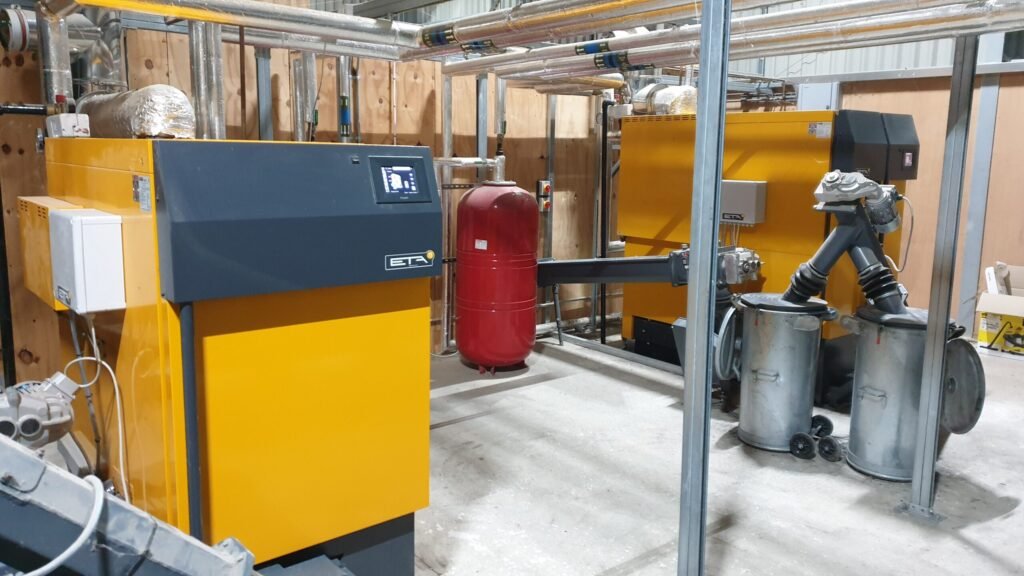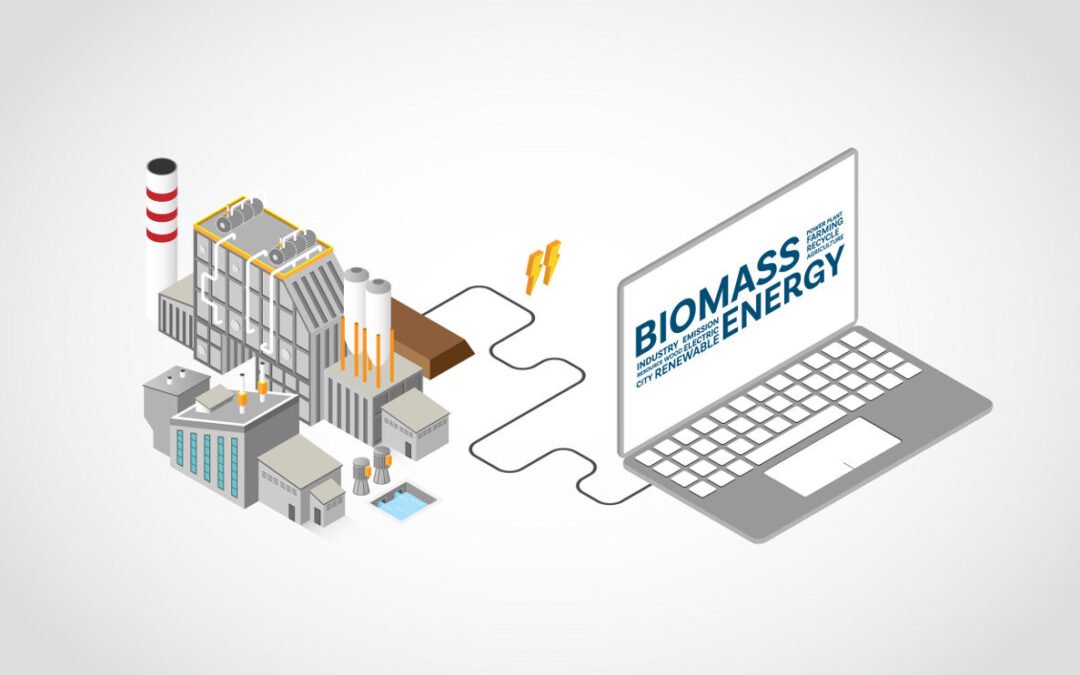As the world becomes increasingly focused on sustainable living, alternative sources of energy are gaining popularity. One such energy source is biomass, which is derived from organic materials such as wood pellets, agricultural waste, and dedicated energy crops. Biomass boilers are a key component of this sustainable heating system. In this article, we will explore everything you need to know about biomass boilers, from their basic functioning to their environmental benefits and domestic applications.
What are Biomass Boilers?
Biomass boilers are a type of heating system that utilize organic materials to generate heat. Unlike traditional boilers that rely on fossil fuels, biomass boilers burn renewable sources of energy, making them an eco-friendly alternative. These boilers are designed to efficiently convert biomass fuel into heat, which can then be used for various heating purposes. Biomass boilers come in different sizes and configurations to suit both residential and commercial needs.
How Does a Biomass Boiler Work?
The functioning of a biomass boiler revolves around a few key components. The fuel, such as wood pellets or chips, is fed into the boiler’s combustion chamber. The ignition process then takes place, heating the fuel and producing a flame. This flame heats the heat exchanger, which in turn transfers the heat to the water or air that circulates within the heating system. The heated water or air is then distributed throughout the building, providing warmth to the desired areas. The combustion process produces ash, which is collected and disposed of in an environmentally responsible manner.
Fuel Requirements for Biomass Boilers
Biomass boilers have flexible fuel requirements, allowing for the use of various organic materials. Wood pellets, which are made from compressed sawdust and wood shavings, are a popular choice due to their high energy content and consistent quality. Wood chips, a by product of the forestry industry, are another commonly used fuel. Agricultural waste, such as straw and corn husks, can also be utilized. Additionally, dedicated energy crops, such as miscanthi and switchgrass, can be grown specifically for biomass fuel production.
Environmental Benefits of Biomass Boilers
One of the main advantages of biomass boilers is their positive impact on the environment. By utilizing organic materials as fuel, biomass boilers reduce reliance on fossil fuels and help combat climate change. Biomass is considered to be carbon-neutral, as the carbon dioxide released during combustion is offset by the carbon absorbed during the growth of the organic material. Furthermore, biomass boilers contribute to the reduction of landfill waste by utilizing agricultural and forestry residues. The use of biomass also promotes sustainable land management practices and supports local economies.
Biomass Boiler Efficiency
The efficiency of a biomass boiler is an important factor to consider when evaluating its suitability for a particular application. Biomass boilers are designed to have high combustion efficiency, ensuring that a large proportion of the fuel’s energy is converted into heat. Modern biomass boilers incorporate advanced technologies, such as automatic fuel feeding and combustion control, to optimize efficiency. The efficiency of a biomass boiler is typically measured by its seasonal efficiency, which takes into account the overall performance across different weather conditions and heating demands.
Domestic Biomass Boilers: What You Need to Know
In recent years, domestic biomass boilers have gained popularity among homeowners looking for sustainable heating solutions. These boilers offer several advantages, such as reduced energy costs, lower carbon emissions, and the opportunity to qualify for government incentives and grants. Domestic biomass boilers can be used for central heating, hot water production, and even for powering household appliances. However, it is important to consider some of the potential disadvantages, such as the need for regular fuel deliveries and maintenance, as well as the initial installation costs.
Advantages of Domestic Biomass Boilers
The advantages of domestic biomass boilers are numerous. Firstly, they provide a sustainable and renewable source of heat, reducing reliance on fossil fuels and minimizing carbon emissions. Secondly, biomass boilers offer cost savings, as biomass fuel tends to be cheaper than traditional fossil fuels. Additionally, homeowners may be eligible for financial incentives, including the Renewable Heat Incentive (RHI), which provides payments for the renewable heat generated by biomass boilers. Furthermore, biomass boilers are versatile and can be integrated with existing heating systems or used as standalone units.
Disadvantages of Domestic Biomass Boilers
While domestic biomass boilers offer many benefits, there are also some considerations to keep in mind. One disadvantage is the need for regular fuel deliveries, as biomass fuel has a lower energy density compared to fossil fuels. This requires homeowners to ensure a steady supply of biomass fuel to maintain uninterrupted heating. Additionally, biomass boilers require regular maintenance to ensure optimal performance and efficiency. This includes cleaning the ash, checking and replacing parts when necessary, and scheduling professional inspections. Lastly, the initial installation costs of biomass boilers can be higher compared to traditional heating systems.
Conclusion: Is a Biomass Boiler Right for You?
In conclusion, biomass boilers are a sustainable heating system that offer numerous benefits, both for the environment and homeowners. By utilizing organic materials as fuel, biomass boilers reduce carbon emissions and promote the use of renewable energy sources. They can be a cost-effective alternative to traditional heating systems, providing long-term savings on energy bills. However, it is important to carefully consider the specific requirements and potential drawbacks before investing in a biomass boiler. Factors such as fuel availability, maintenance needs, and initial installation costs should all be taken into account. By weighing the advantages and disadvantages, you can determine whether a biomass boiler is the right choice for your heating needs.
If you are interested in exploring the benefits of biomass boilers and sustainable heating systems, contact us today for more information and a customized solution tailored to your needs



